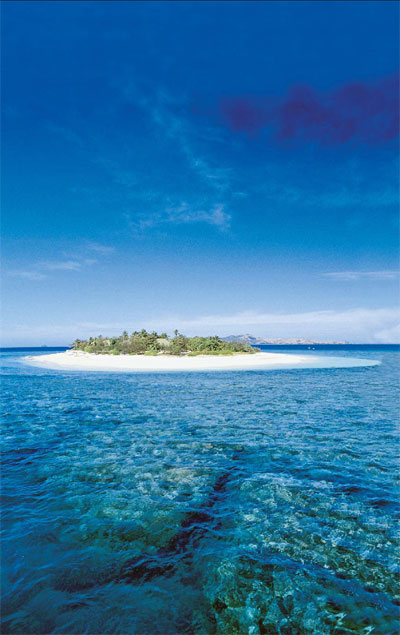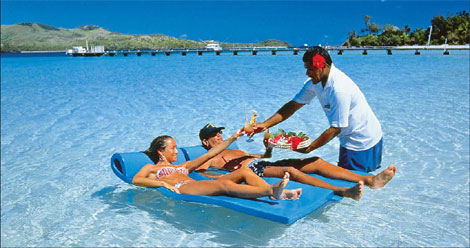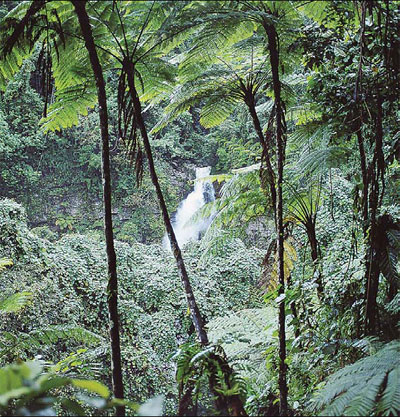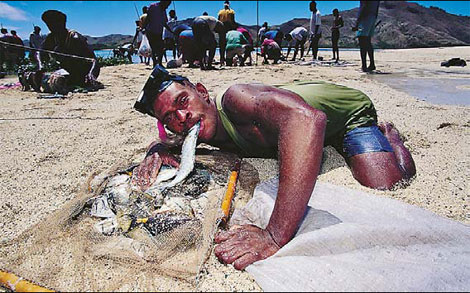That sinking feeling
 |
| Many Pacific Island nations are threatened by rising sea levels. |
 |
| Tourism is a major money spinner for the Pacific Islands. |
 |
| Rainforests are a big tourist drawcard, but deforestation is another problem faced by Pacific Island nations. |
 |
| Rising sea levels threaten both current and future generations of Pacific Islanders. |
 |
| Fishing and tourism are the main revenue earners for most Pacific Island countries. |
Global warming could spell the end for a number of tiny island nations in the Pacific, Shi Yingying reports.
Despite their image of paradise on Earth, many Pacific Islands are struggling with environmental issues, such as rising sea levels caused by global warming, pollution, and conflicting relationships between the tourism industry, local culture and ecology.
Inside the Pacific Pavilion, visitors are drawn to the Vanuatu exhibition, which is decorated with fresh tropical flowers and indigenous wooden artworks. The travel poster hanging on the wall portrays this South Pacific Island as a paradise for honeymooners. There is no indication of the magnitude 7.5 quake it suffered earlier this month or the small tsunami that followed. Nor is there any sign of the active volcano on Tanna Island in the country's north.
After the earthquake on Aug 9 - its epicenter was 46 kilometers northwest of the capital Port Vila - the immediate reaction from Vanuatu's authorities was to urge people to move to higher ground.
"Sea level readings indicate a tsunami was generated. A recorded wave amplitude of 23 centimeters has been observed at Port Vila," the Pacific Tsunami Warning Center said in an email alert.
When Iokapeta Selulo, from the tiny Pacific nation of Tuvalu and who works at the Pacific Pavilion, heard the news, she was fearful. "Imagine if it (the earthquake and tsunami) happened to us, we would have nowhere to escape - we don't have any higher ground," she said.
 0
0 






